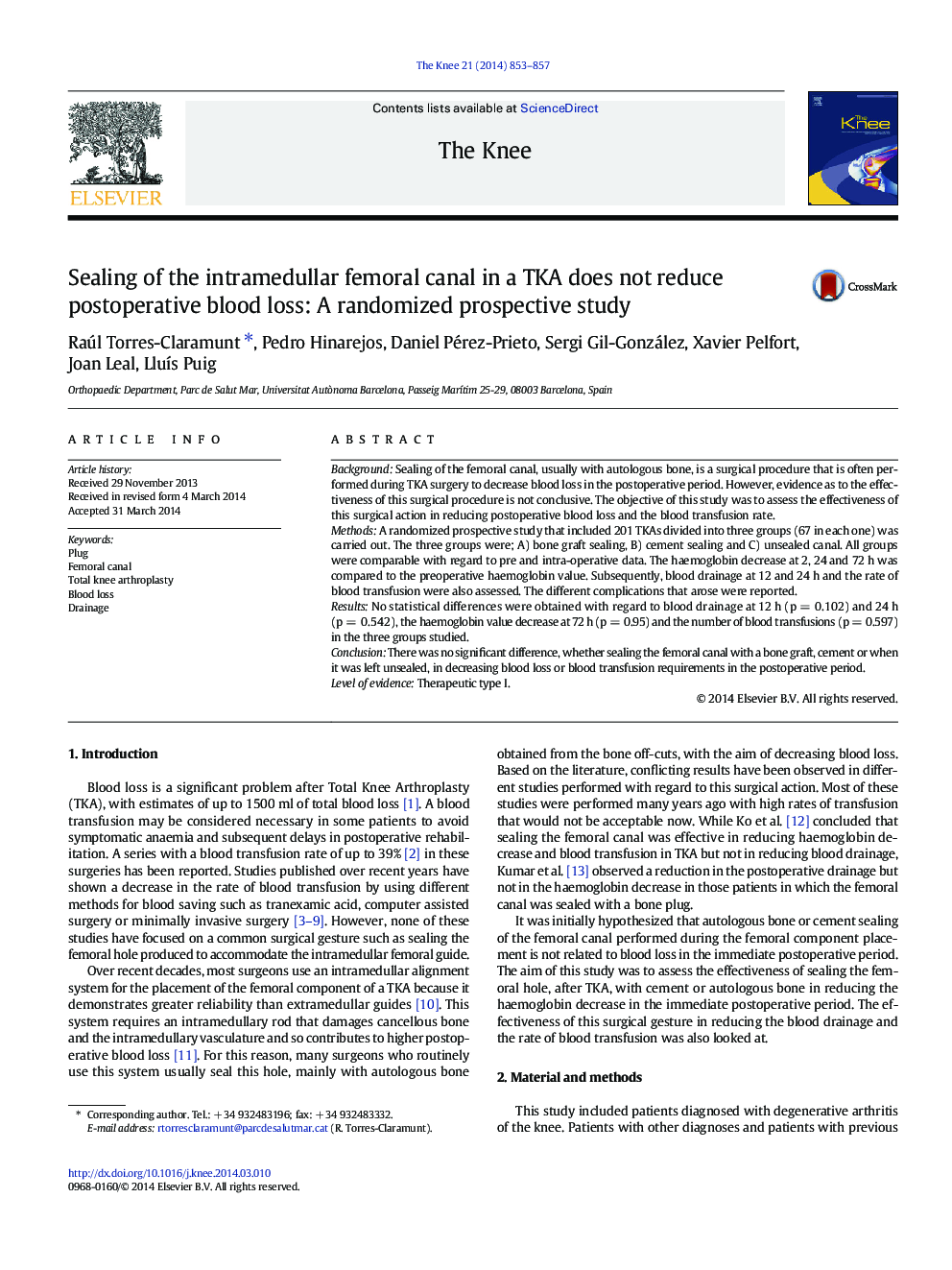| Article ID | Journal | Published Year | Pages | File Type |
|---|---|---|---|---|
| 4077436 | The Knee | 2014 | 5 Pages |
BackgroundSealing of the femoral canal, usually with autologous bone, is a surgical procedure that is often performed during TKA surgery to decrease blood loss in the postoperative period. However, evidence as to the effectiveness of this surgical procedure is not conclusive. The objective of this study was to assess the effectiveness of this surgical action in reducing postoperative blood loss and the blood transfusion rate.MethodsA randomized prospective study that included 201 TKAs divided into three groups (67 in each one) was carried out. The three groups were; A) bone graft sealing, B) cement sealing and C) unsealed canal. All groups were comparable with regard to pre and intra-operative data. The haemoglobin decrease at 2, 24 and 72 h was compared to the preoperative haemoglobin value. Subsequently, blood drainage at 12 and 24 h and the rate of blood transfusion were also assessed. The different complications that arose were reported.ResultsNo statistical differences were obtained with regard to blood drainage at 12 h (p = 0.102) and 24 h (p = 0.542), the haemoglobin value decrease at 72 h (p = 0.95) and the number of blood transfusions (p = 0.597) in the three groups studied.ConclusionThere was no significant difference, whether sealing the femoral canal with a bone graft, cement or when it was left unsealed, in decreasing blood loss or blood transfusion requirements in the postoperative period.Level of evidenceTherapeutic type I.
